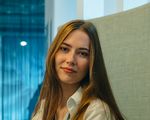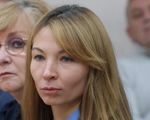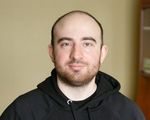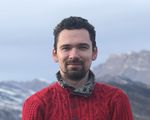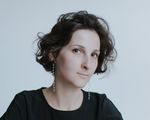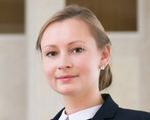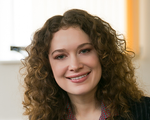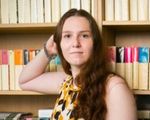About Success Builder
How do you find your place in life? How do you find something to do that both comes naturally to you and makes you happy? The answer is that you have to apply the knowledge you’ve gained from university and from life itself correctly. The Success Builder Project features HSE University graduates who have discovered themselves through an interesting business or an unexpected profession. The protagonists share their experiences and lessons learnt and talk about how they’ve made the most of the opportunities they were given.
Anatoly Braverman graduated with a bachelor’s degree from the ICEF programme in 2006, received invaluable experience conducting deals at a major Russian oil company and personally witnessed the history of investments in the Russian economy by becoming one of the first employees of the RDIF in 2011. In this interview with Success Builder, Mr Braverman explains why international education is especially useful when working for the betterment of the Russian economy, the nature of ‘anti-virus’ investments and how the RDIF directed them towards the development of the Sputnik V vaccine, and much more.
It seems that your family has a tradition of taking an interest in the economy. Is that right?
Yes. My father is a professor with a PhD in Economics, and this played a role in my choice of profession and university. My mother always advocated this field as well. I began studying economics in high school, and when I decided that I would go to HSE, I began focusing my preparatory work on that. I was genuinely interested in it and really liked it. HSE already had a reputation by that time and applicants who had chosen this university knew where they were headed and why — it was a new and promising education at an international level. While still in the 9th grade, I started visiting HSE and ICEF on Open House days. Lev Lyubimov worked with applicants then. A wonderful person, he played an important role in my understanding of the future and my interest in working as an economist.
HSE had a special reputation and it attracted certain types of people. What made it seem to you like a good fit?
It was the early 2000s and this was no longer an ‘educational experiment’ of some sort: the university had already proven itself and could take pride in its graduates and its many outstanding departments. The new approach to education had clearly paid off. The ICEF programme was relatively new and looked quite promising — and it was unique in Russia.
ICEF students received an international education with two diplomas — from HSE and the University of London. Many highly qualified ICEF applicants chose it for this fact alone. It also played a key role in my decision to study in the ICEF bachelor’s programme, as well as the university’s outstanding instructors and the fact that they actually played an active role in the Russian economy.
Which prospects were open to you? Where did you start your career?
I started interning in my second year and wound up in the investment analysis department at LUKOIL. I was assigned my first duties there and, like any student, I had to work hard to translate my acquired knowledge into practice. Overall, HSE and ICEF provide a good foundation, which really helped me gain applied experience and achieve tangible results quickly.
After working at LUKOIL for a little more than three years, and due to my experience there with M&A transactions, Gazprom Neft invited me to come work at a new division for acquiring oil-refining assets. I grew quite a bit and learned a lot at Gazprom Neft. In particular, I gained my first managerial experience, managing both individual employees and entire divisions.
Which qualities as an HSE student and graduate helped you most at the beginning of your career?
The ability to work hard is extremely important for students at any university and at all stages of building a career.
The ICEF programme is especially good at developing a strong work ethic: to earn two diplomas, you need to work very hard — you have twice as many exams, constant deadlines and numerous complex tasks
All this requires self-discipline, which you develop as a student. This skill helps you throughout life. What’s more, ICEF significantly expands your horizons, especially because you are ‘brewing’ in an international environment. In particular, you are in close communication with visiting teachers from the London School of Economics, Oxford and other world-famous universities. ICEF brings together the best international experience with its specialists in business and its alumni, with whom students can communicate and look to for constant support in job hunting and career guidance.
The programme’s international standard greatly developed our ability to think systematically. It prepared us to continue our studies abroad and to work in a multicultural environment. Something one of my ICEF teachers said comes to mind most frequently: ‘the main skill you can develop here is to learn how to learn.’ This one skill proved to be crucial in the stories of the many ICEF graduates who went on to succeed.
How did you familiarise yourself with the energy field and then specialise in the oil industry?
All students, regardless of their majors, studied a core curriculum. For example, I specialised in management, which was a separate area of focus at ICEF then. But at the same time, I continued my studies in statistics, mathematical analysis and micro- and macro-economics. You could always take elective courses to focus on your areas of interest. Students master a very broad range of knowledge for a bachelor’s degree and this foundation can be applied to almost any field that requires a strong command of financial analysis.
I got into the oil industry through the investment and analysis department of LUKOIL, which was engaged in strategic development and financial analysis. This was precisely the area where I could apply my specific professional skills. I learned the ins and outs of the industry through what were essentially financial processes. I started out analysing opportunities for acquiring gas stations, and a little later, in a different division, I participated in many transactions for the acquisition of oil refineries abroad. I think that all graduates who worked in investment analysis had to do the same thing — that is, delve into the specifics of various industries.
After a year and a half, my supervisor and I were transferred to the main oil-refining department. Since this was a specialised division, I also took courses at the University of Oil and Gas to gain a better understanding of the technological side of oil refining. I couldn’t attain the same level of mastery as my colleagues who had studied the subject in a specialised university, but the additional knowledge still helped me a great deal in understanding the particulars of working with assets, conducting transactions and communicating with our business partners.
Did you ever try helping the national economy by working in government agencies? They say there’s a great need for economists there.
Because they have an excellent education, HSE graduates are in demand everywhere, including at state agencies. At my current place of employment with the Sovereign Wealth Fund of the Russian Federation, the entire team works directly for the benefit of the Russian economy. We interact a great deal with representatives of various ministries and other government departments. In fact, graduates with degrees in economics work not only in the Ministry of Economic Development and the Ministry of Finance but also in the Ministry of Energy, the Ministry of Transport and other structures where an education in economics would not seem to be central to their activities.
What is it like working with transactions?
My full-fledged career began about 15 years ago. I recall my first experiences in major transactions in which LUKOIL acquired two oil refineries. It was important that after the acquisition of the asset, the project team further integrate it into the larger company’s structure and development. That is, our work did not end with preparing and executing the transaction itself.
It was a very useful experience because I soon moved to the RDIF where the whole process only begins with the acquisition of an asset. We have carried out numerous transactions in the 10 years I have worked there under Kirill Dmitriev. After each is concluded, you must consider how to develop and support each asset to later make a successful exit with a good profit for the shareholder — which, in our case, is the government.
Which personal qualities helped most in advancing your career, especially in becoming a manager?
The first was probably negotiating skills, but this is hard to get a feel for as a student. It comes with experience communicating in a wide variety of situations and circumstances.
Each set of negotiations is a subtle, unique process
Other than that, I would emphasize four qualities that are important for advancing your career. The first is maintaining attention to detail. It is extremely important not to lose focus as the number of tasks you face increases in number and complexity. This is what it means to multitask. I am learning this from our CEO who, despite his busy schedule, maintains his focus on all issues in every key area of all transactions and projects.
The second is the ability to organize processes at all levels. This is closely related to attention to detail because effective management is impossible without a thorough understanding of what is happening in each area of work. The third quality is a strong work ethic and the fourth is the ability to think systematically because the number of duties you have grows in proportion to your level of responsibility. You can only structure and organize your work if you can turn any type of chaos you encounter into a system. This requires personal focus and practice.
Where did you start at the RDIF? What is your role now in the development and growth of the Fund?
Kirill Dmitriev invited me to work at the RDIF in the fall of 2011 and I was one of the first specialists hired. I always say this with pride because I saw the Fund when it first formed and participated in its activities from the very beginning. Since then, I’ve gone from Senior Vice President to my current position as First Deputy CEO.
The organization didn’t even have an office back then, but now, under Mr Dmitriev’s leadership, the RDIF has become a world-famous sovereign fund of the Russian Federation with a huge number of global objectives that are mostly focused on attracting investment in the Russian economy. And now, considering that one of the recent major development projects has been the international promotion and scaling up of production of the Sputnik coronavirus V vaccine, the Fund’s activities have a direct effect on everyone and are intimately connected with not only economic matters, but also global social issues.
How have investment trends developed and changed during this time, and why do investments now flow only into technology?
Trends shift in any market. Technology really is attracting the attention of public and private investors now, but this does not mean that other areas are being ignored. Investments in technology represent 20% of the RDIF portfolio’s target volume, but we also continue to invest actively in infrastructure and in other more traditional industries that have been on the investment scene longer.
How has the pandemic affected investment policy?
I am proud to say that the RDIF was one of the first institutions to recognize the risks associated with the coronavirus and the scale of the problem. This was largely thanks to colleagues in China and the Middle East with whom we had already established contact. They promptly shared their experience and information about the scale of the impending difficulties. We quickly focused on ‘anti-virus’ investments aimed at producing the world’s fastest and most accurate system of medical diagnostic tests for coronavirus.
After that, we financed the creation and large-scale production of Russia’s first, and the world’s second drug for treating coronavirus, Avifavir. This led us to the largest project in this field — the creation of the Russian Sputnik V vaccine, as well as its promotion on international markets and manufacture in Russia and overseas. This turned out to be the world’s first registered vaccine against the novel coronavirus.
We also managed to support a number of the companies in our portfolio that were affected by the pandemic. As a result, many even improved over their previous performance. For example, we invested in the ivi company. This turned out to be a very fortuitous decision because it became very popular to watch movies at home during the pandemic.
How did your work at RVC differ from RDIF?
The Russian government decided in late 2020 to reform its development institutions, and the RVC was transferred to the RDIF. Kirill Dmitriev instructed me to supervise the integration of the RVC into the RDIF. So now, I have two roles: First Deputy CEO of the RDIF and CEO of the RVC.
The RVC will operate primarily as a fund of funds while the RDIF invests in individual projects. We are now integrating the RVC into the RDIF group, working out technical and legal issues, conducting a substantive analysis of the current portfolio and new opportunities and resolving structural tasks regarding how to build divisions and functionality in the future.
Of course, we will apply many of the best practices of the RDIF to the RVC, practices such as the principle of co-investment. The RDIF was one of the first in Russia and the world to use this practice. In co-investment, a business partner also invests in a project and helps it develop. Many countries, including in the CIS and Europe, have adopted this model because it is so effective. The principle of co-investment makes it possible to combine several expert approaches on the same transaction or project.
The work of the RVC will maintain this focus: co-investments will be made in funds, that in turn will invest in companies, although at an earlier stage than in the RDIF. This will help attract more Russian and foreign partners for the rapid development of the domestic economy.
Do many HSE and ICEF graduates work at the RDIF? Which specialists are most needed now in the investment industry?
We do have a large number of graduates from HSE and ICEF in particular. They are reliable specialists who work for many years and are a valuable part of the Fund’s personnel. As a rule, we hire people with investment banking and direct investment fund experience. It all depends on the position. At the same time, we also consider skills they have developed in investment analysis, the execution and structuring of transactions and the preparation of project materials.
The company has a system for supporting employees and we regularly conduct various trainings. We also train employees according to which industry they are involved in because a person should have a deep understanding of the field in which his portfolio company operates or in which a transaction is being prepared.
In my opinion, the RDIF provides employees with a unique experience because, together with our business partners, we account for more than 90% of the direct investment market in Russia
A large number of companies in our portfolio have operational activities with which we can and should thoroughly acquaint ourselves, as well as several major areas of activity, including medicine. You could hardly find such a wide range of tasks and opportunities anywhere else in Russia.
What advantages does an international education provide for someone working in the Russian economic system?
Indeed, ICEF graduates must often choose whether to build their career in Russia or abroad, and having such a choice is a huge advantage. Many HSE graduates, including my ICEF classmates, have built successful careers in various countries. I am also happy to see a growing number of highly qualified HSE graduates in a wide variety of industries with which I work in Russia.
The opportunity to study at an international level has played a major role in my career. The RDIF works with foreign investors around the world and it is incredibly helpful knowing how foreign education and business thinking, practices and communication work — not to mention having a high level of proficiency in professional English.
The RDIF works with foreign investors, focusing on investment opportunities that benefit and help develop the Russian economy. It’s a challenging task because the investments need to be balanced to offer an attractive return to both our shareholder — the state — and to foreign co-investors.
The RDIF is in constant communication with the sovereign funds of Saudi Arabia, the United Arab Emirates and China, and with business partners in Japan and Europe. Thus, while working in this country’s sovereign fund for the benefit of the Russian state, we also have the responsibility of building relationships with partners around the world. We are proud not only to be working at the global level successfully but also to be truly developing the Russian economy. After all, each person makes the professional choice of whether to leave or stay. For my career, I chose to develop in Russia, and I am happy that I work in such a structure as the RDIF.


